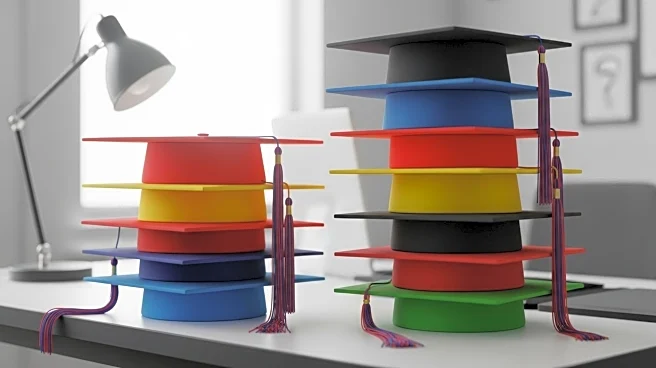What is the story about?
What's Happening?
Recent college graduates are experiencing significant difficulties in securing full-time employment, despite holding bachelor's degrees. According to data from the Burning Glass Institute, the unemployment rate for new entrants, including recent grads, has reached a nine-year peak. This trend is altering the traditional path from college to career, as the promise of white-collar jobs for degree holders is increasingly unreliable. Federal Reserve Chair Jerome Powell has acknowledged the challenges young people face in finding work, citing a 'low-firing, low-hiring environment.' The rise of artificial intelligence and a saturated market of degree holders are contributing factors to this shift.
Why It's Important?
The challenges faced by recent graduates have broader implications for the U.S. economy and labor market. As young people struggle to find employment, their financial stability and career trajectories are impacted, potentially leading to decreased consumer spending and economic growth. The situation may also affect college enrollment rates, as the perceived value of higher education diminishes. Additionally, the rise of AI and automation threatens entry-level jobs, further complicating the employment landscape for new graduates. This shift could lead to increased anxiety and uncertainty among young adults, affecting their long-term economic prospects.
What's Next?
The labor market's current conditions may persist, as the demand for workers with four-year degrees is not keeping pace with the supply. This could result in a reevaluation of higher education's role in career preparation. Companies may need to adjust their hiring practices to accommodate the changing landscape, potentially offering more entry-level opportunities or reconsidering experience requirements. Policymakers and educational institutions might explore strategies to better align educational outcomes with market needs, ensuring graduates are equipped for the evolving job market.
















